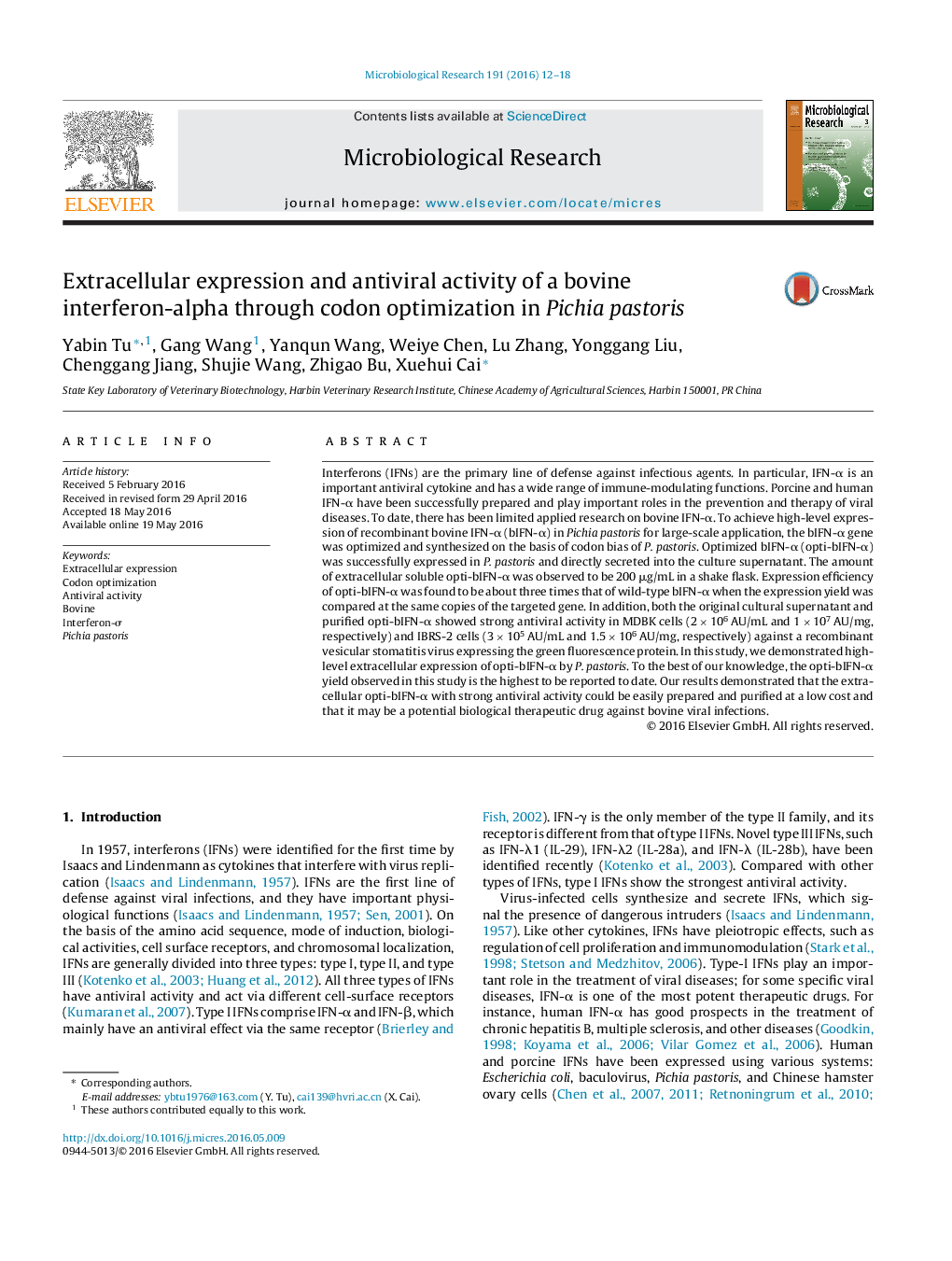| Article ID | Journal | Published Year | Pages | File Type |
|---|---|---|---|---|
| 8423454 | Microbiological Research | 2016 | 7 Pages |
Abstract
Interferons (IFNs) are the primary line of defense against infectious agents. In particular, IFN-α is an important antiviral cytokine and has a wide range of immune-modulating functions. Porcine and human IFN-α have been successfully prepared and play important roles in the prevention and therapy of viral diseases. To date, there has been limited applied research on bovine IFN-α. To achieve high-level expression of recombinant bovine IFN-α (bIFN-α) in Pichia pastoris for large-scale application, the bIFN-α gene was optimized and synthesized on the basis of codon bias of P. pastoris. Optimized bIFN-α (opti-bIFN-α) was successfully expressed in P. pastoris and directly secreted into the culture supernatant. The amount of extracellular soluble opti-bIFN-α was observed to be 200 μg/mL in a shake flask. Expression efficiency of opti-bIFN-α was found to be about three times that of wild-type bIFN-α when the expression yield was compared at the same copies of the targeted gene. In addition, both the original cultural supernatant and purified opti-bIFN-α showed strong antiviral activity in MDBK cells (2 Ã 106 AU/mL and 1 Ã 107 AU/mg, respectively) and IBRS-2 cells (3 Ã 105 AU/mL and 1.5 Ã 106 AU/mg, respectively) against a recombinant vesicular stomatitis virus expressing the green fluorescence protein. In this study, we demonstrated high-level extracellular expression of opti-bIFN-α by P. pastoris. To the best of our knowledge, the opti-bIFN-α yield observed in this study is the highest to be reported to date. Our results demonstrated that the extracellular opti-bIFN-α with strong antiviral activity could be easily prepared and purified at a low cost and that it may be a potential biological therapeutic drug against bovine viral infections.
Related Topics
Life Sciences
Biochemistry, Genetics and Molecular Biology
Biotechnology
Authors
Yabin Tu, Gang Wang, Yanqun Wang, Weiye Chen, Lu Zhang, Yonggang Liu, Chenggang Jiang, Shujie Wang, Zhigao Bu, Xuehui Cai,
